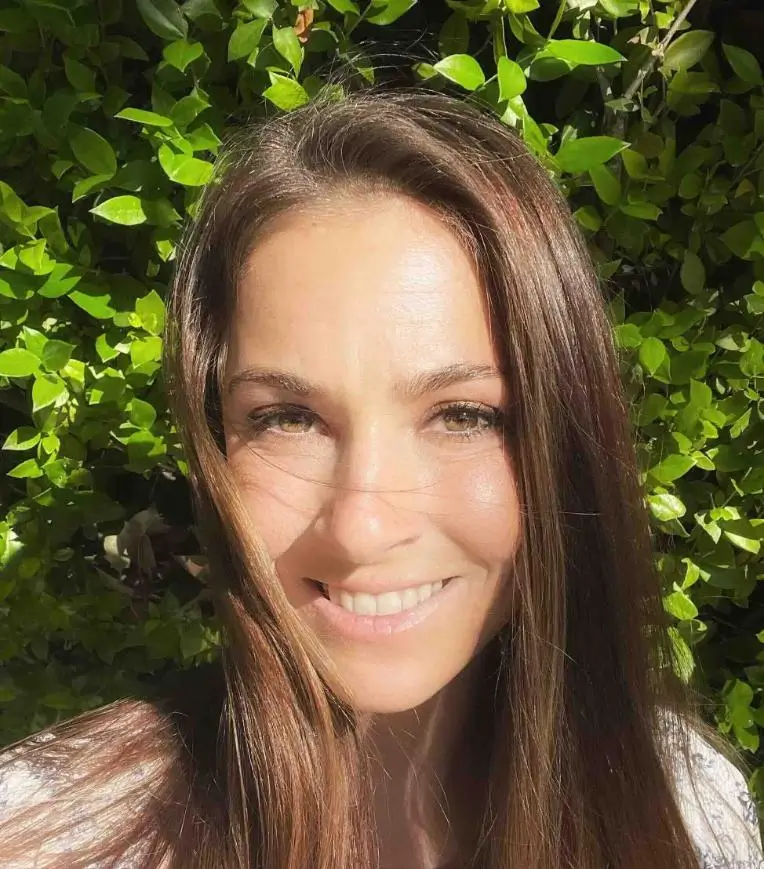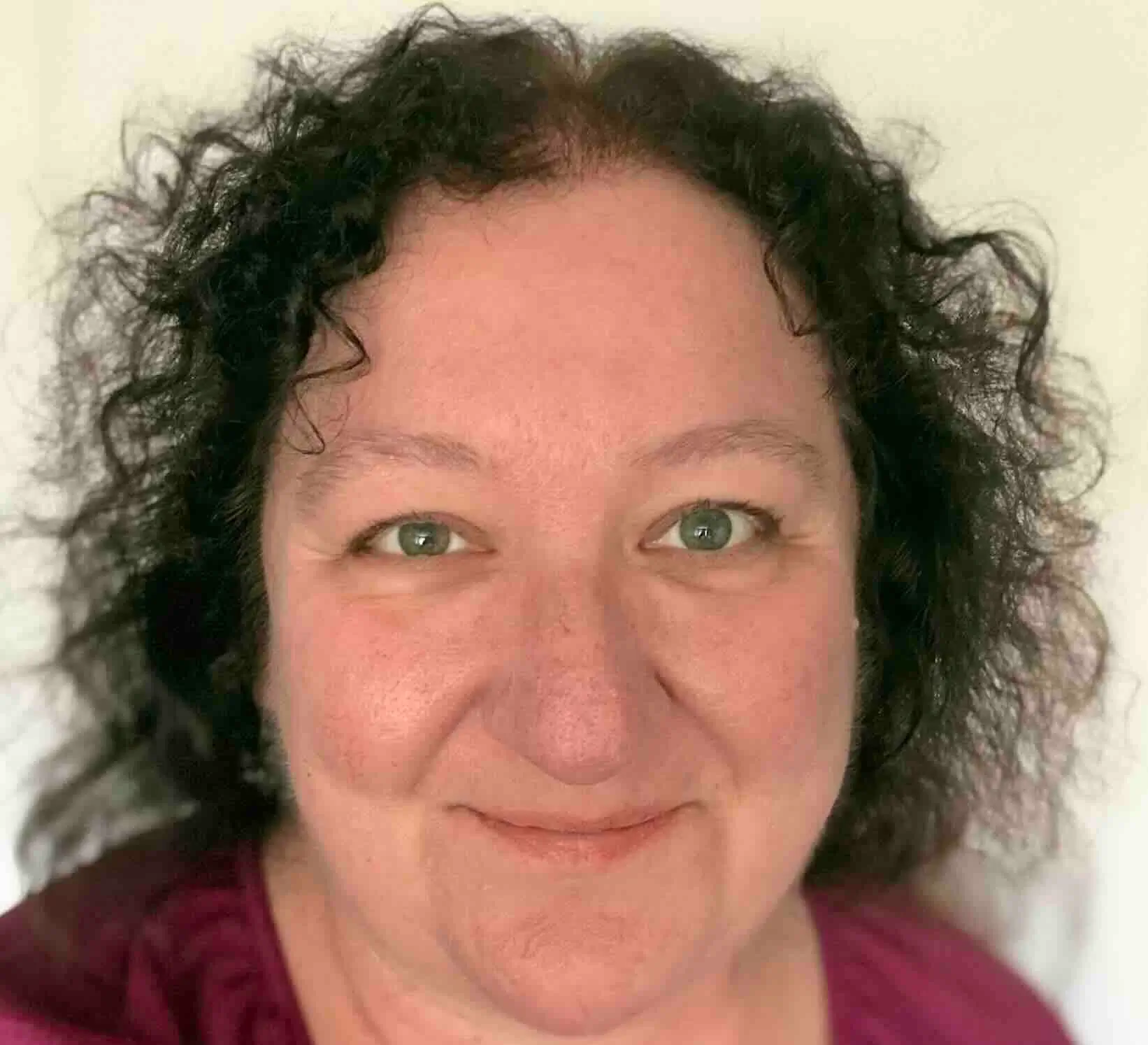Select Your State
Insurance
Find a perimenopause & menopause nutritionist or dietitian covered by your insurance
Fay helps you find the best menopause nutritionists & registered dietitians covered by your insurance. Dietitians you find on Fay are vetted and available for virtual or in-person sessions near you. Pay nothing (or next to nothing) out of pocket.
Trusted by over 100,000 clients
Fay has high standards for quality of care, read more about how we screen providers to guarantee you're meeting with the best nutrition and wellness experts in the country.
Perimenopause & menopause nutrition counseling covered by insurance










The best perimenopause & menopause nutritionists and dietitians
Fay has high standards for quality of care, read more about how we screen providers to guarantee you're meeting with the best nutrition and wellness experts in the country.
Melissa Tolan-Halleck, RD
Priyanka Jonnalagadda, RD
Noor-Hoda Hakimjavadi, RD
Rosemarie Lyons-Kimelman, RD
Fay has high standards for quality of care, read more about how we screen providers to guarantee you're meeting with the best nutrition and wellness experts in the country.
Can't find the right match?
Work with a menopause dietitian or nutritionist covered by your insurance
Overcome your challenges with menopause
Menopause and perimenopause can be both stressful and confusing. They often bring a rollercoaster of physical and emotional challenges, including:
- Weight gain
- Higher risk of heart disease
- Osteoporosis risk
- Hot flashes
- Fatigue
- Anxiety and mood swings
- High blood pressure and cholesterol
- Brain fog, loss of concentration, and memory issues
Gain relief from menopause symptoms with personalized support
You don’t have to go through perimenopause and menopause alone. A menopause dietitian can help you:
- Design a custom menopause diet plan
- Address nutritional deficiencies
- Recommend supplements, if needed
- Manage your weight gain or loss
- Improve your bone health
- Guide you through menopause symptoms
- Boost energy levels
- Reduce inflammation
Everyone's journey is different, so your dietitian works with you 1 on 1 to provide a hyper-personalized plan
Have you tried (seemingly) every diet out there with limited success? Trying to beat prediabetes holistically? Worn out from life and know your diet could be better but don’t know where to start? Your dietitian will assess all this and more to craft a completely personalized approach for your treatment based on your goals, lifestyle, health history, motivators, and more. Fay dietitians use clinically proven methods to drive results, including goal setting, intuitive eating, nutrition education, lifestyle counseling, lab testing, and meal planning.
The world of nutrition is overwhelming. There’s so much information out there – but how can you know what’s right for you? The reality is: nutrition is complex and requires an expert’s guidance. Registered dietitians are the only nutrition professionals qualified to offer medical nutrition therapy (MNT). That means RDNs have a deep understanding of the chemical properties of food and how that interacts with one’s body on a cellular level to impact overall health. Instead of stressing out over the latest food trend, put your care in the hands of a dietitian and find ease in knowing you’re getting personalized, research-backed nutrition advice.
Ready to break free from the harsh voice in your head criticizing your every food choice? Whether weight loss is part of your goals or not, your dietitian can help calm the noise with a research-backed approach that addresses both the practical challenges of daily meals and the psychological factors of disordered eating. You can learn ways to manage your health and weight that go beyond the confines of a traditional “diet” by prioritizing balance and finding the right nutrition approach for you personally.
Accountability is a crucial factor in making any lifestyle change. Having a set weekly meeting with your dietitian – and knowing you have an expert on your side – can make a world of difference when it comes to sticking to your nutrition goals. You’ll have regular check-ins where you go over your progress and any challenges you’re facing, and together, you and your dietitian will make adjustments to account for your evolving needs. RDNs know as well as anyone that a successful plan is one that fits into your life, not works against it.
You have to make a lot of decisions every day, including what to eat. Meal planning removes the headache of that decision, and when it’s done in partnership with your dietitian, it’s that much easier to meet your goals without exhausting yourself in the process. All the hard work of figuring out how much to eat and when is already done for you – you just need to stick to the plan. Your RDN can provide meal ideas and recipes too, which can help boost adherence and make following your plan simpler and more enjoyable.
No matter why you’re getting a dietitian’s expertise, intuitive eating principles can help almost anyone cultivate a healthier relationship with food. Using behavioral psychology, intuitive eating emphasizes getting in touch with your body to better understand hunger and fullness cues, identify emotional eating, and remove any shame or guilt that might come up. With this psychological approach, your dietitian can help you calm the “food noise” in your mind to cultivate a sense of empowerment and joy in eating once again.
Meeting your nutrition goals is about more than just the food you eat. Your daily routine – activity level, sleep schedule, stress levels, work life, and environment – has a huge impact on your overall health. Your dietitian will create your personalized plan based on these factors and more. Taking this approach makes your plan more realistic, which makes achieving your goals easier. It also allows your RD to identify any potential challenges and craft a plan to overcome them.
Food can play an important role in managing chronic health conditions, but you need an expert to guide you. Fay has dietitians specializing in diabetes, IBS, PCOS, thyroid health, obesity, and more. These providers can collaborate directly with your broader care team to ensure your nutrition plan is aligned with your ongoing treatments. Your RDN can do more than just make a meal plan based on your goals and condition – they can also educate you on the key factors of eating for that condition, empowering you to continue the care for yourself.
Health is foundational to wellbeing. Fay dietitians are qualified to support weight loss, hormonal imbalances, chronic disease, and much more. Collaborating with an RDN greatly increases your chances of success in meeting your goals. Whatever your nutrition goals are, you can find a board-certified registered dietitian nutritionist specializing in that area with Fay.
Food is intrinsically linked to our health and wellbeing. People who worked with a dietitian through Fay made lifestyle changes that had immense benefit to their physical health.
Making lifestyle changes surrounding food and nutrition had benefits that went beyond the physical. Food and our relationship with it, has far reaching implications on our emotional and mental health.
What to look for in a perimenopause & Menopause nutritionist
Proper credentials
Look for a Registered Dietitian (RD) or Registered Dietitian Nutritionist (RDN) who specializes in menopause nutrition and women's health. These professionals have a Master's degree in nutrition sciences and experience working in the field. RDs and RDNs can offer you science-based advice on how to manage menopause and perimenopause symptoms and improve overall health.
Expertise in women's health
A menopause dietitian can offer personalized nutrition advice tailored to your unique needs. They can help identify nutrient deficiencies, manage menopause and perimenopause symptoms, and support healthy weight management. With a focus on hormone balance and anti-inflammatory foods, they guide you through dietary changes that help ease the transition.
Proven track record
Choosing a registered dietitian with a proven track record means you can trust they’ve successfully helped others manage menopause symptoms. They’ll create a personalized nutrition plan to address hot flashes, weight changes, bone health, fatigue, and other challenges. Knowing their strategies have worked for others can offer you confidence in achieving real results. You’ll feel supported with practical solutions tailored to your needs.
Empathetic communication style
A dietitian with an empathetic communication style can make a big difference when dealing with menopause. They can understand your emotional and physical challenges, offering support without judgment. This makes it easier to open up about sensitive issues like weight changes, mood swings, and more so you can receive the guidance you need.
.png)
Benefits of working with a Fay Menopause Nutritionist
A personalized approach
Everyone experiences menopause differently; what works for someone else may not be right for you. That's why a one-size-fits-all approach does not work. Fay menopause nutritionists tailor nutrition advice to your specific needs, which can help you manage these changes more effectively. This personalized guidance can help you achieve your health and lifestyle goals.
Virtual or in-person meetings
Virtual sessions with a dietitian nutritionist are just as effective as in-person meetings. All of Fay's menopause nutritionists are available to meet online at your convenience. This flexibility makes it easier to stay on track with your health goals. Plus, you get access to experts all over the country without being limited by your zip code.
A holistic approach to health
Menopause can lead to many changes throughout your entire body. This can make you experience a wide range of symptoms unique to your own genetics, hormones, diet, lifestyle, weight, and more. A Fay menopause nutritionist who adopts a whole-body approach to wellness may be better suited to help guide you through the many changes that menopause brings.
Ongoing support
Menopause usually starts between 45-55 years of age and lasts around seven years. You might also experience perimenopause symptoms 4-8 years before menopause begins. When your body is constantly changing, you may benefit from a Fay menopause nutritionist who offers continued guidance and support along your health journey.
.png)
Manage menopause weight gain, hot flashes, brain fog, and build muscle mass
Weight gain
Managing your weight during menopause can feel like an uphill battle. Hormonal changes and a slowing metabolism often lead to weight gain, especially around your belly. Plus, sugary foods become harder to resist, making it harder to stay on track. If this excess weight gain is not addressed, it can increase the risk of health issues like diabetes, heart disease, and bone loss. But with a personalized nutrition plan and the proper support, you can navigate these changes and protect your health.
Hot flashes
Hot flashes can make your skin feel hot, your heart race, and drench you in sweat. They can last several minutes and can be overwhelming to experience. However, a few changes to your diet and lifestyle may help reduce their intensity. Try adding soy products, flaxseeds, and lots of fruits and veggies to balanced meals. On the flip side, avoid triggers like caffeine, alcohol, and spicy foods. Small diet changes can make a big difference in managing hot flashes naturally.
Brain fog and memory issues
Brain fog and memory issues during menopause are often triggered by fluctuating hormones, stress, and fatigue. These changes can make it difficult to focus or recall information. A nutrient-rich diet can help manage these symptoms naturally. Foods high in omega-3s, antioxidants, and B vitamins—like leafy greens, oily fish, and nuts—can boost brain health and improve mental clarity. A menopause nutritionist can tailor a plan that works best for you.
High blood pressure and cholesterol
During menopause, hormonal changes can lead to higher blood pressure and cholesterol. AA drop in estrogen levels often leads to weight gain and increases your body's sensitivity to salt, raising blood pressure. During this time, high cholesterol can also become an issue. Simple changes, like eating more whole grains, fruits, and vegetables, and regular exercise, can help manage these risks. Because everyone’s body responds differently, a menopause nutritionist can create a plan that fits your specific needs.
Frequently Asked Questions
Can a nutritionist or dietitian help with menopause?
Yes, Fay's Registered Dietitian Nutritionists, who specialize in menopause and women's health, can help manage menopause symptoms, whether you are on hormone replacement therapy (HRT) or not. Menopause can bring a host of challenging issues, including weight gain, hot flashes, brain fog, high blood pressure, increased cholesterol, and a greater risk of osteoporosis. A menopause dietitian can offer a balanced, personalized nutrition plan to help you through this transition.
Can a nutritionist or dietitian help with menopause?
Yes, Fay's Registered Dietitian Nutritionists, who specialize in menopause and women's health, can help manage menopause symptoms, whether you are on hormone replacement therapy (HRT) or not. Menopause can bring a host of challenging issues, including weight gain, hot flashes, brain fog, high blood pressure, increased cholesterol, and a greater risk of osteoporosis. A menopause dietitian can offer a balanced, personalized nutrition plan to help you through this transition.
How can a menopause nutritionist help me?
A menopause nutritionist can help manage symptoms like hot flashes and weight gain through tailored nutrition. They create personalized eating plans to support hormone balance and overall well-being. You'll get one-on-one guidance to address your unique needs. They can also help with mood changes and sleep issues. With their expertise, navigating menopause naturally becomes much easier.
How can a menopause nutritionist help me?
A menopause nutritionist can help manage symptoms like hot flashes and weight gain through tailored nutrition. They create personalized eating plans to support hormone balance and overall well-being. You'll get one-on-one guidance to address your unique needs. They can also help with mood changes and sleep issues. With their expertise, navigating menopause naturally becomes much easier.
Is menopause nutrition counseling covered by insurance?
Yes, all Fay menopause nutritionist sessions are covered by insurance. Most people pay nothing or just a small copay of $10 or less. This allows you to focus on your health without worrying about additional expenses.
Is menopause nutrition counseling covered by insurance?
Yes, all Fay menopause nutritionist sessions are covered by insurance. Most people pay nothing or just a small copay of $10 or less. This allows you to focus on your health without worrying about additional expenses.
Can a menopause nutritionist help with weight gain during menopause?
Yes, a menopause nutritionist can help with weight gain. Hormonal changes like a drop in estrogen during menopause often make it harder to maintain a healthy weight. A personalized nutrition plan can make a real impact. Fay's dietitians can help you choose the right foods for you and make lasting lifestyle changes. This support can help you feel more in control of your body during this transition.
Can a menopause nutritionist help with weight gain during menopause?
Yes, a menopause nutritionist can help with weight gain. Hormonal changes like a drop in estrogen during menopause often make it harder to maintain a healthy weight. A personalized nutrition plan can make a real impact. Fay's dietitians can help you choose the right foods for you and make lasting lifestyle changes. This support can help you feel more in control of your body during this transition.
Fay connects people with Registered Dietitian Nutritionists to receive personalized nutrition counseling, covered by insurance. We accept over 700+ insurance plans so most patients will pay between $0 - $12 per session. Fay boasts the largest network of dietitians in the country with over 1,000, giving access to life-changing nutrition care to millions.
Fay has dietitians that specialize in eating disorders, gestational diabetes, bariatric, cardiovascular, weight management, type 1 and type 2 diabetes, stage 1 through 4 chronic kidney disease, oncology, GI, and many others. All dietitians on Fay are board-certified, licensed healthcare providers.
A registered dietitian (RD) or registered dietitian nutritionist (RDN) is a credentialed practitioner who has, at least, completed a bachelor’s degree, a supervised practice program, the Commission on Dietetic Registration’s exam, and a state license. Both RD and RDN are protected titles, meaning only those who have completed the qualifications can use the titles. Nutritionist, however, is not a protected title, and anyone can claim it. There is no standardized training for nutritionists, and many nutritionist training programs are unregulated. Registered dietitians can provide preventative care and treat conditions like diabetes, eating disorders, gastrointestinal disorders, and many other medical conditions with medical nutrition therapy.
Most people get their sessions for free when they book with Fay. Without coverage, you could pay closer to $150 per session. To get more confidence about your coverage, you can check your price using our pricing tool.
Yes, Fay nutritionists accept most insurances. Nutrition services are only covered by insurance if the nutritionist is a Registered Dietitian (RD) or Registered Dietitian Nutritionist (RDN). When you book through Fay, we guarantee all providers are board-certified RDs / RDNs and capable of accepting your insurance. We accept most major insurances including: Blue Cross Blue Shield, United Healthcare, Cigna, Aetna, Anthem, Humana, and over 700+ insurance plans. You can check to see if you're covered by using our pricing tool.
Find the best menopause nutritionist covered by your insurance
.jpeg)





















































.svg)